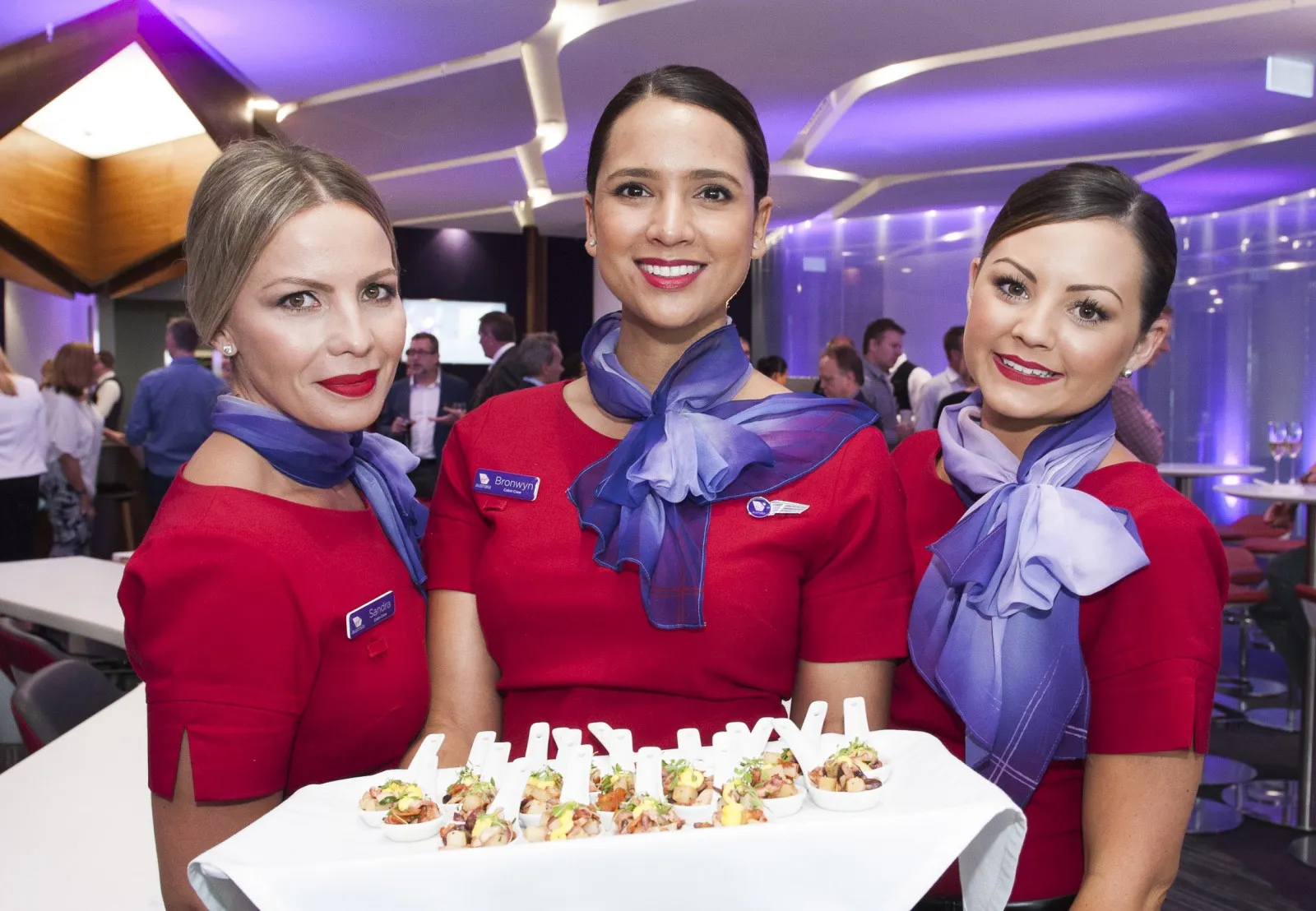
Qantas, Virgin face off on flights to Tokyo Haneda
Sep 17, 2019

Qantas and Virgin Australia are intensifying their competition for flights to Tokyo Haneda, one of Japan's most desirable airports due to its proximity to the city center. Both airlines are vying for a share of the lucrative travel market as international travel rebounds. Qantas aims to capitalize on its established presence in the region, while Virgin seeks to attract travelers with competitive pricing and enhanced services. As they both enhance their schedules and offerings, passengers can expect increased choices and potential fare wars, making it an exciting time for travelers looking to explore Japan.
In recent news, the competition between Qantas and Virgin Australia has intensified, particularly regarding their flight offerings to Tokyo Haneda Airport. This strategic face-off is drawing attention from travelers and industry analysts alike, as both airlines aim to capture a larger share of the lucrative Australian-Japan travel market. Here, we provide an in-depth analysis of how Qantas and Virgin are positioning themselves in this competitive landscape.
Flight Offerings Comparison
When considering flights from Australia to Tokyo Haneda, both Qantas and Virgin Australia present compelling options. Below is a comparison of their flight offerings:
| Airline | Flight Duration | Frequency | In-Flight Amenities | Economy Class Price |
|---|---|---|---|---|
| Qantas | 9 hours 15 minutes | Daily | Wi-Fi, In-Seat Entertainment, Complimentary Meals | From AUD 850 |
| Virgin Australia | 9 hours 30 minutes | 5 times a week | Wi-Fi, In-Seat Entertainment, Complimentary Meals | From AUD 800 |
As seen in the table, Qantas offers a daily flight service to Tokyo Haneda, making it a more convenient choice for business travelers and tourists alike. Virgin Australia, on the other hand, operates flights five times a week, which might appeal to specific travel schedules.
Route Advantages
Tokyo Haneda Airport is strategically located closer to central Tokyo compared to Narita International Airport, making it a favored choice for travelers. Both airlines are capitalizing on this by promoting the ease of access to business districts and major tourist attractions.
Qantas emphasizes its strong brand presence and extensive network, often marketing the benefits of seamless connections to other destinations in Asia and beyond. Virgin Australia, however, seeks to differentiate itself with competitive pricing and personalized customer service, appealing to younger travelers and those looking for value.
Marketing Strategies
The battle for market share extends beyond just flight schedules and prices. Both airlines are investing heavily in marketing strategies aimed at attracting travelers to their respective services. Here’s how they stack up:
| Airline | Target Audience | Advertising Channels | Promotions |
|---|---|---|---|
| Qantas | Business Travelers | TV, Social Media, Travel Blogs | Frequent Flyer Promotions, Corporate Packages |
| Virgin Australia | Leisure Travelers | Social Media, Influencer Partnerships, Email Campaigns | Discounted Fares, Family Packages |
Qantas's target audience primarily includes business travelers who value reliability and premium services. In contrast, Virgin Australia focuses on leisure travelers, utilizing social media and influencer partnerships to resonate with younger demographics.
Customer Experience
Customer experience is another critical factor where both airlines strive to excel. Qantas has long been known for its exceptional service, frequently topping customer satisfaction surveys. Their loyalty program, the Qantas Frequent Flyer, offers various rewards that enhance the travel experience.
Virgin Australia has made significant strides in improving customer experience, especially in the areas of on-time performance and customer service. Their loyalty program, Velocity, has also gained traction, offering unique rewards tailored to their audience.
Future Outlook
Looking ahead, the competition between Qantas and Virgin Australia for flights to Tokyo Haneda is expected to escalate. As travel demand continues to rebound post-pandemic, both airlines are likely to expand their services and enhance their offerings.
Qantas may respond to Virgin’s competitive pricing by introducing promotional fares or additional flights, while Virgin Australia could enhance its in-flight experience to attract more business travelers. Ultimately, travelers will benefit from this competition, with more choices and better service quality.
Conclusion
In conclusion, the face-off between Qantas and Virgin Australia over flights to Tokyo Haneda highlights the dynamics of the airline industry. As both airlines refine their strategies and offerings, travelers can look forward to improved services and competitive pricing. Whether you choose Qantas for its extensive network and premium services or Virgin Australia for its cost-effectiveness and customer-centric approach, the competition promises to elevate the travel experience to Japan.
Related Articles

Explore Thailand: The Best Islands to Visit for Paradise, Adventure, and Relaxation

The Ultimate Guide to the Best Islands in Thailand for Your Next Getaway

Do babies need passports? How to get a passport for a newborn

How to get a U.S. passport fast: here’s how to expedite the process

What is Mobile Passport Control: 5 reasons why you should use it

SENTRI vs. Global Entry: A detailed guide

Do you need a passport to go to the Bahamas? Let’s find out

Do you need a passport to go to Mexico? A detailed guide

Do you need a passport to go to Canada? We got the answer

Do You Need a Passport for a Cruise: An Essential Travel Guide

Booster Seat Requirements: All the Rules to Follow in Your Rental Car

What Are the World’s Most Powerful Passports, and How Does Yours Rank?

How to Take a Passport Photo at Home: A Helpful Guide

You've got to have heart! Southwest's new livery

Your opinion: Should water be free on low cost carriers?

Young women bolder than guys as solo travellers
